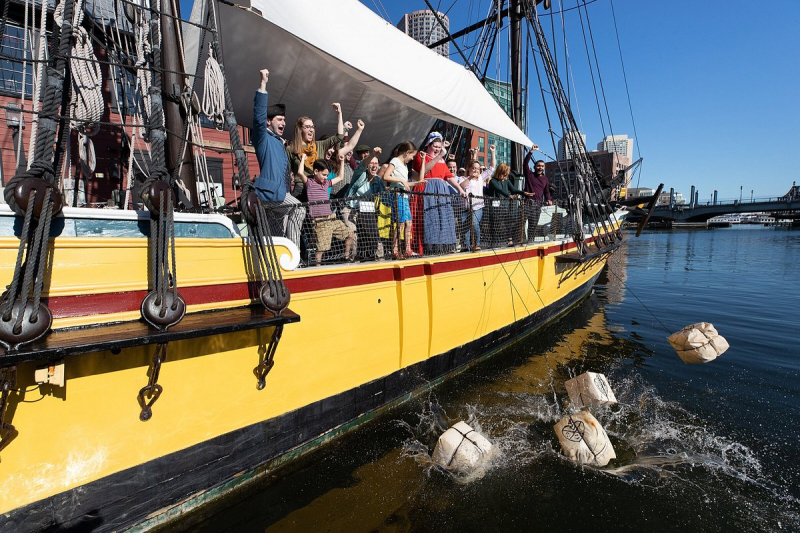Boston Tea Party
The Tea Act was enacted by the British Parliament on May 10, 1773, to assist the financially suffering British East India Company. The Act authorized the Company to sell tea in American colonies without paying any taxes other than the Townshend Acts import charge. Smuggled Dutch tea made up more than 80% of the tea consumed in America at the time, and the Act harmed American merchants who imported tea from the Netherlands. The colonists staged protests against the Act and rallied resistance to the tea's distribution. Tea was shipped by the East India Company to Boston, New York, Philadelphia, and Charleston.
The Boston Tea Party is typically attributed to the colonists' dissatisfaction with an unjust tea tax. That is just partially correct. The Tea Party was a protest against a levy enacted during the French and Indian War to help collect finances. But the levy was also a political power play on Parliament's part, intended to reclaim authority over the colonies, as well as an economic choice to bail out the bankrupt East India Company, a vital link in the English trade chain.
Protesters in the other three colonies, except Boston, stopped the tea from landing. The Royal Governor of Boston, Thomas Hutchinson, however, refused to give in to the pressure. On December 16, 1773, a group of men headed by Samuel Adams boarded East India Company ships, some dressed as Native Americans, and threw all 342 chests of tea valued at £10,000 into Boston Harbor. The Boston Tea Party was an important occurrence leading up to the American Revolutionary War. As a result, it became a defining moment in American history.











